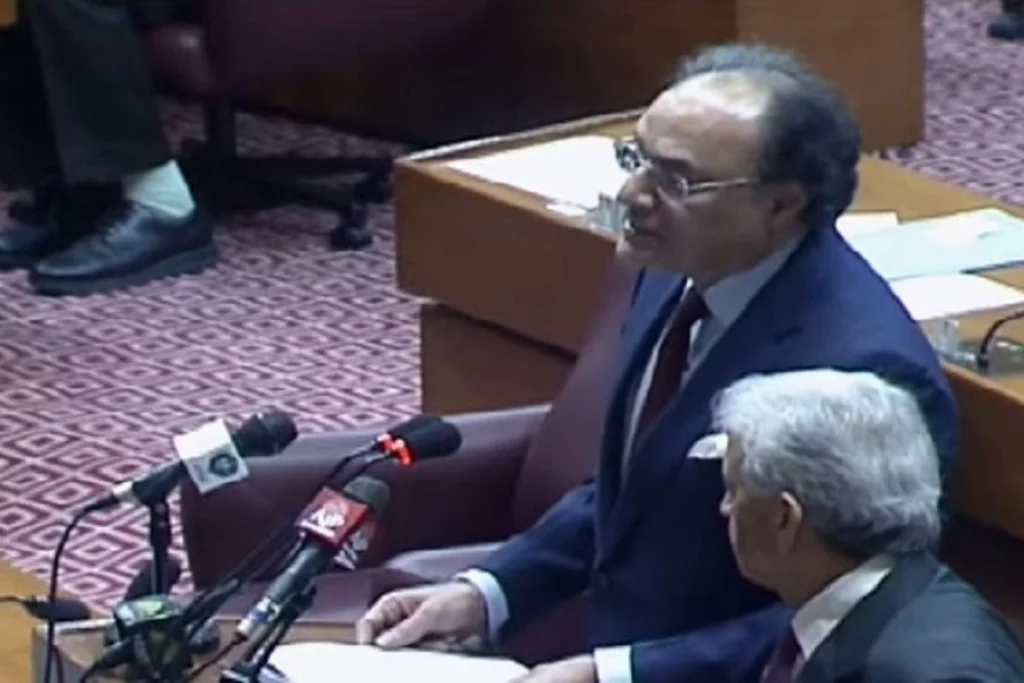
Islamabad: Federal Minister for Finance and Revenue, Senator Muhammad Aurangzeb, on Monday concluded the debate on the general discussion on the Budget for Fiscal Year 2025–26, affirming it as a “balanced plan focused on providing public relief, promoting industry, curbing government expenditures, enhancing revenues, and ensuring fair tax enforcement—all aimed at fostering sustainable growth and driving an export-led economy.”
During his remarks, Minister Aurangzeb highlighted that numerous tax and relief measures had been incorporated into the budget following extensive suggestions from the finance committees of both the National Assembly and the Senate. He reiterated the government’s steadfast commitment to economic stability, particularly amid prevailing regional uncertainty.
Among the key adjustments and measures announced, the minister notably provided significant income tax relief for the salaried class. For individuals earning between Rs0.6 million and Rs1.2 million annually, the income tax rate has been cut from the initially proposed 2.5% to just 1%. He also clarified that no tax will be imposed on pension commutation or gratuity, with only individuals receiving pensions above Rs10 million being subject to tax, while those over 75 years of age are fully exempt.
On the solar energy front, the minister announced a reduction in the proposed 18% sales tax on imported solar panel components to 10%. This tax will apply only to 46% of imported items, resulting in an approximate 4.6% increase in the price of imported solar panels. This adjustment aims to balance support for local industries with affordability for consumers.
Furthermore, following the Prime Minister’s direction, restrictions on large asset purchases by undocumented individuals have been eased. These restrictions will not apply to residential houses up to Rs50 million, commercial plots or properties up to Rs100 million, and vehicles worth up to Rs7 million. The budget also reintroduces a tax credit on mortgages for homes up to 10 marla (250 square yards) and flats up to 2,000 square feet, along with a reduction in withholding tax rates on real estate purchases.
Minister Aurangzeb also highlighted a significant increase in the budget of the Benazir Income Support Programme (BISP) from Rs592 billion to Rs716 billion, aiming to benefit over 10 million low-income families. To bolster the agricultural sector, the government is launching a collateral-free loan program for small-scale farmers, offering loans up to Rs1 million.
The finance minister emphasized that the new tax measures have been carefully designed to avoid burdening the common man, instead focusing on high-income segments and wealthier businesses. He stressed that export-oriented industries have largely been exempted from new taxes to preserve global competitiveness.























